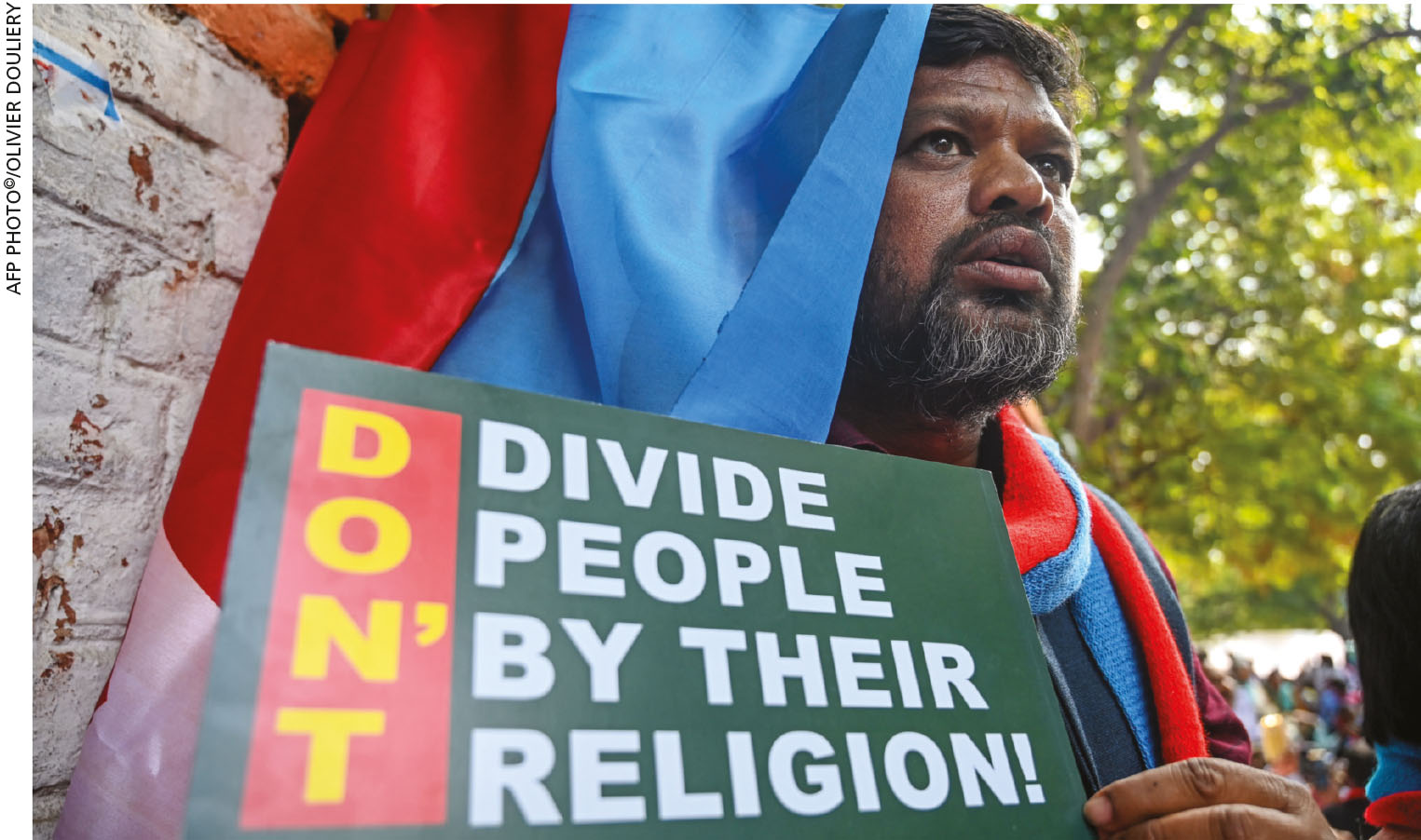RELIGION IN NATIONALISM
THE PULPIT OR THE PODIUM?
Sandesh Bartlett explains why religion has come to permeate modern politics
“He’s against God. He’s against guns.” In only six words, US President Donald Trump made Democratic presidential rival Joe Biden congruent with two major factors that drive and divide US politics: Christianity and the Second Amendment.
In spite of his poor spelling, and a tendency for tweeting tirades and mispronunciation, the address demonstrates that Trump is more intelligent than people give him credit for.
The bonds between the pulpit and politics are as old as civilisation; and in spite of attempts to secularise politics as far back as the 19th century with the rise of Western nationalism, the potential for religion to incense the public into making ripples across politics has not diminished.
In fact, modern politics has witnessed a new nationalism often packaged with religious zeal – a stark contrast from its 19th century progenitor. As such, there is a growing relevance to gauge how religion has permeated the political space with identity politics increasingly dominating the 21st century political landscape worldwide.
While religion is one dimension of identity politics, the fact that religion and politics concern groups and their relationships with outsiders means that both maintain a modicum of congruence that enable religious sentiments to seep through the political membrane with greater effect than other forms of identity.
This congruence was framed early in the 19th century by Gaetano Mosca, one of the founders of modern political science, in his book Elementi di Scienza Politica. He observed that in both religious and political groups, so long as followers were loyal to the central flag, they covered and excused “their worst villainies.”
International relations scholar and researcher Monica Duffy Toft argues that – contrary to popular opinion – modern religious influence in global politics is not the product of the post 9/11 landscape but rather, three events that unfolded in the 1970s.
The first, Toft notes, is the failure of postcolonial modernisation; citizens began to challenge newly independent postcolonial states fashioned in the image of secular and modern Western nations for failing to provide the public with basic goods and services.
Religious leaders and their ideals of equality often propelled the public’s criticism of the state. This, concomitant with postcolonial reinterpretation of religious doctrines, led to anti-secular movements such as the Islamist overthrowing of Mohammad Reza Shah in the Iranian Revolution.
The second, is that democratisation helped propel various religious voices into the international space and put them into power, which ran parallel with the third factor: globalisation.
According to Toft, globalisation helped these rising quasi-political religious institutions and ideals become increasingly transnational in nature, enabling them to permeate other states and political spaces.
Today, to the astute observer, the subsequent results of these movements have long since approached putrescence.
From the Bharatiya Janata Party’s (BJP) advocacy of Hindu nationalism in the secular Indian political space at the expense of Muslim minorities to Trump’s exploitation of religious sentiments, and the attempts of several
Sri Lankan political parties to make nationalism and patriotism congruent with being Sinhalese-Buddhist, identity politics has taken centre stage globally – often at the expense of others.
The way forward is not simple. A reporter for The Economist notes that the solution is to resist the claim modern political leaders and movements tend to espouse that politics is a zero-sum game.
As more groups such as white nationalist Christians in the West, Islamic nationalists in Turkey and Buddhist nationalists in Sri Lanka demand special treatment in policy based on their identity, it’s paramount that it be made clear that such zero-sum games are a fallacy in politics.
Merely because several Muslim immigrants migrate to the US doesn’t mean white Christians will lose their rights. In the same way, securing minority rights in Sri Lanka in no way undermines the rights of Buddhists. Simply because one community gets rights in the pursuit of equity, it doesn’t mean that another community gets fewer.
However, this is easier said than done. The tense threads of identity that dominate modern politics have become instrumental in the rise of the nationalist demagogue masquerading as a patriotic political leader.
Therefore, Trump’s claims that his rival Biden is against both God and guns should not seem absurd in the least. Trump’s ability to continually exploit boiling ethno-religious sentiments and tense constitutional front lines has made him an unlikely maestro in the world of growing populist leaders.
As more states worldwide become insular, and begin to shun globalisation and modern values of equality and equity, strumming the string of religion has become a pervasive cacophony the world over.






Leave a comment